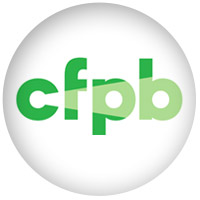
The Cluetrain Manifesto, written 10 years ago by Rick Levine, Christopher Locke, Doc Searls and David Weinberger, has won over a sizable number of devotees with a simple premise: As the Internet introduces new levels of communication among consumers — and between consumers and companies — those companies are going to have to respond with intelligent and direct communication.
That idea may not seem to be groundbreaking today, says Leyla Fara, a principal with public affairs company Cause + Effect, but the fact that companies are still searching for the best way to have that conversation says a lot about its relevance.
“I remember when it first came out — it was the type of book that everyone in the industry had to read if they wanted to stay current,” Fara told CRM Buyer.
Since then, its premises have become part of the way she conducts business and deals with customers. “The 10-year anniversary is really just an arbitrary benchmark — this will be part of the conversation about customer communications for a long time.”
One-Way Conversation
Some parts of the original manifesto, such as the incorporation of advertising into the concept, have gotten lost in translation, writes Doc Searls in another blog post noting the 10-year benchmark.
“Advertising,” he writes, “also involves guesswork and waste, and always will. It is also, by its out-to-the-world nature, not a ‘conversation.’ This is why I’m uncomfortable with the notions of ‘conversational media’ and ‘conversational marketing.’
Especially when Cluetrain is used to justify it.
“It’s true that the first of its 95 Theses says ‘Markets are conversations’ (no ‘All,’ no headline-type caps); but the next 94 unpack that point, along with a few more, none of which are justifications for advertising. In fact, we mention advertising only once, at #74, which says, ‘We are immune to advertising. Just forget it.’ (Even if that’s not true, it’s what the thing says, so at least get that much right.). …
“To sum up,” writes Searls in another post on the subject,
- The customer is the new platform: it’s time to take sides with ourselves, and not just those of sellers;
- Markets are relationships;
- The Internet economy will grow around what we actually want; and
- Our work is barely started.
Hearts, Flowers and Teeth
Ten years later, echoes Francine Hardaway, “we’re still in the grasp of the vendors. No new social network is big enough to accomplish what we have to do on our own. And we can’t do it individually: we have to do it with the power of the group.
“And it’s dependent on open source, which is a product of human nature. Its wild and free environment is the Net: Nobody owns it, everybody can use it, anybody can improve it.”
From a technology perspective, much has changed in the last 10 years, writes Susan Etlinger.
However, one of the speakers at a conference noting the book’s anniversary asked some probing questions of the assembled crew, “all of whom (we’d like to believe anyway), purport to know something about marketing and even, uh, social media,” she observes.
“For example: if customers are supposedly so important to companies, why is it that the people who deal directly with customers are usually the least trained, and with the least control? Why, when evaluating social media programs, do we insist on a transactional approach — ROI — to evaluate what is essentially a relationship? (I can hear it now: “Honey, can you please quantify the benefits of our relationship in 2008? What? But I gave you flowers on Valentine’s Day! Wait!! Come back!!!”)
“Okay, so these are rhetorical questions,” Etlinger continues, “and we all know the answer: financial reality. But what happens as we start to realize that financial reality is headed in a different direction — multiple directions — all at once?
“As Roy Scheider said in Jaws: “I think we’re gonna need a bigger boat.”
























































Thanks for the link. The thinking really belongs to Deb Schultz, whose talk I attended at the Cluetrain event last week. For a deeper dive, visit: http://www.cluetrainat10.com/2008/05/deborah-schultz.html or her Web site at http://www.deborahschultz.com.